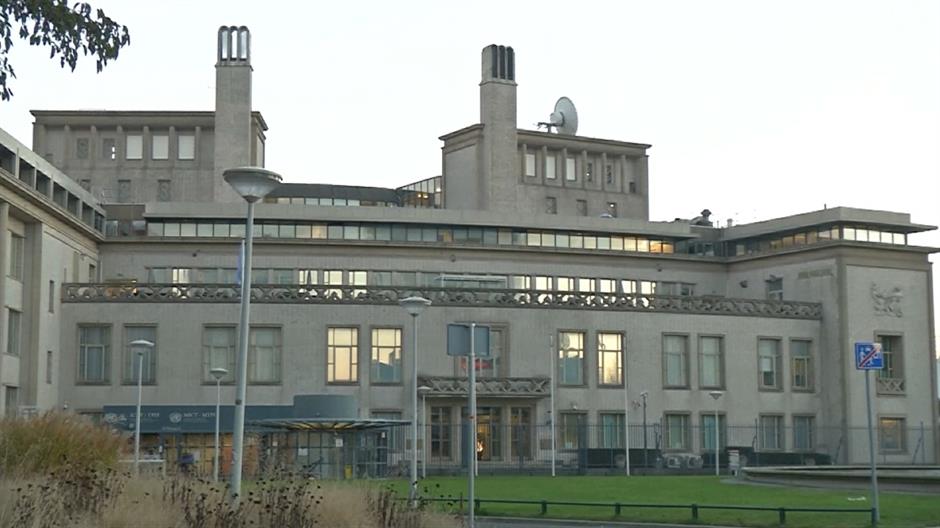
The International Residual Mechanism for Criminal Tribunals (IRMCT) has once again rejected the request of the former commander of the Drina Corps of the Army of Republika Srpska (VRS), Radislav Krstic, who was sentenced to 35 years in prison for aiding and abetting the genocide in Srebrenica.
In her decision, the President of the Mechanism, Judge Graciela Gatti Santana, stated that although Krstic meets the conditions for early release, she believes his request should be denied, Detektor reports.
Judge Gatti Santana explained that the gravity of Krstic’s crimes influenced the decision to deny his early release and that the demonstration of rehabilitation must be more convincing in cases of severe criminal conduct.
"I acknowledge the fact that Krstic has made positive progress and consider his public admission that genocide occurred in Srebrenica and that he participated in it, as a reflection of a level of rehabilitation. This is significant given the rise of historical revisionism and genocide denial in the region," stated Gatti Santana.
In her decision, she added that she was not yet convinced that Krstic had demonstrated a sufficient degree of rehabilitation to meet the "elevated threshold," nor was there evidence of compelling humanitarian reasons that would outweigh the negative assessment.
Krstic submitted a request for early release last year, along with a letter in which he accepted responsibility for the committed war crimes and genocide.
In the letter, Krstic praised the adoption of the Resolution on the Genocide in Srebrenica, which designates July 11 as a day of remembrance for the genocide victims, and stated that he supports the Resolution.
"I accept the Tribunal's verdicts from 2001 and 2004, which establish that the army I belonged to committed genocide against Bosniaks in Srebrenica in July 1995, and that I aided and abetted genocide by knowing that some members of the Main Staff intended to commit genocide," Krstic wrote in the letter.
Krstic admitted that he aided and abetted crimes against humanity through participation in a joint criminal enterprise to forcibly remove Bosniak civilians from Potocari.
He also acknowledged his role in creating a humanitarian crisis that preceded the forced transfer of women, children, and the elderly from Srebrenica, knowing that civilians were exposed to killings, rapes, beatings, and mistreatment.
He stated that he was aware that the VRS Main Staff did not have sufficient forces to carry out the executions without using the Drina Corps forces.
"I would like to visit Potocari once more in my life, to pay my respects to the victims and ask for forgiveness," Krstic wrote, explaining that he would do so if the victims’ families allowed it.
Judge Gatti Santana referred to the evidence and Krstic’s letter in her decision, stating, among other things, that she does not consider his expressions of remorse and acceptance of responsibility to be sincere, nor does she believe they are solely motivated by his request for early release.
She pointed out that many families of the genocide victims are still waiting for information about their loved ones and cannot find peace. Given that it has been established that the Drina Corps participated in the executions, burials, and relocations of human remains, "it is reasonable to conclude that Krstic, as the commander of the Drina Corps, had access to extensive information about their operations."
"In my view, Krstic could demonstrate genuine remorse by revealing all relevant information he possesses or by convincingly and transparently explaining why he does not have such information that could help in the search for missing human remains," stated Gatti Santana.
She added that such an act would convince her more of Krstic’s lack of indifference toward his victims and the tragedy of the missing persons than mere expressions of sympathy and understanding for the victims.
Krstic was sentenced by the Hague Tribunal in 2004 to 35 years in prison for aiding and abetting genocide in Srebrenica. Later that year, he was transferred to serve his sentence in England, where he was attacked in prison.
He was then returned to The Hague and later sent to Poland to serve the remainder of his sentence before being transferred back to the detention unit in The Hague.
Krstic has repeatedly sought early release, but the Mechanism has rejected his requests.
Kakvo je tvoje mišljenje o ovome?
Učestvuj u diskusiji ili pročitaj komentare





 Srbija
Srbija
 Hrvatska
Hrvatska
 Slovenija
Slovenija


























































